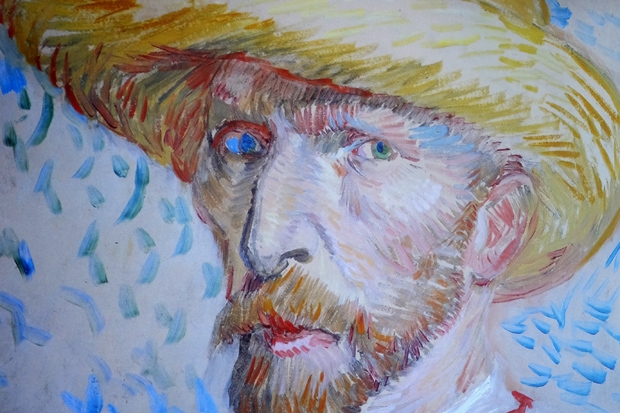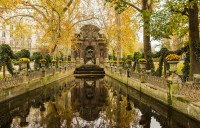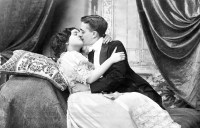I didn’t fancy the hotel breakfast, so I wandered into Arles old town looking for a café. The weather and the season had changed overnight. The day before had been hot, golden and still. This morning an icy wind was yanking the last of the dying leaves from the plane trees and my thin canvas jacket was no defence against it. Choosing a café at random on the Place du Forum, I pushed through the glass door and took a seat in the warmth of the café’s conservatory. Three other customers were inside, lingering over their coffee. I chose a bench seat, from where I could look south across the square. A big, blowsy, all-action waitress cantered up. I asked her for a cup of coffee, a croissant and a glass of orange juice. She rematerialised almost immediately with these items and slid them on to the table with a friendly absence of ceremony. Then she disappeared out the back, from where I could hear her stridently arguing the toss about something with a submissive male who conceded each successive point of her careful argument. The croissant felt heavy in the mouth, almost meaty. The coffee and the iced, freshly squeezed orange juice had roughly the same dramatic effect on my constitution as Jesus had on Lazarus’. Revived and restored, I leaned back and took in my surroundings, noticing two things in particular.
One was how very tranquil we three customers were when the waitress was out of the room. An old man with his back to me was sitting motionless over his coffee cup as though meditating. On the other side of the room a woman was hypnotised by something on her phone. Outside, the mad, icy wind whipped up the fallen twigs and leaves: inside was warmth, electric light and a peace that passeth all understanding. What is more, we could have sat all day, I felt, without buying anything more than a cup of coffee or two and nobody would have minded. I speculated that this new cold signalled the end of the tourist season and now everyone could relax. As you were, as it were. The other thing I noticed was that I was sitting in more or less the exact spot that Vincent van Gogh had set his easel when painting the café next door, a painting that became known as ‘Café Terrace at Night’, whose distinctive hallucinogenic stars in the sky above have made it a firm favourite with the punters. The first of his paintings to include those bonkers stars, it is also one of his most popular, featuring on all the fridge magnets, mugs and mouse mats.
I googled it on my phone and compared the scene with present reality. The lighted shop opposite the café has gone, if it was ever there. Otherwise the scenes tallied. Then I sat and thought about the poor man, and about the letters he wrote to his brother, which I read a long time ago, one after the other, in a paperback collection. My overriding impression of the voice in the letters, I remembered, was of a Christian saint. Not that the locals thought so in the short time that the ex-missionary lived, painted, boozed, whored, and mutilated himself among them. Thirty of them signed a petition demanding that the ‘red-headed madman’ be removed from the town. When Van Gogh painted a portrait of the doctor who treated him, and gratefully presented it to him, the doctor hated it so much he gave it to his mother, who nailed it to her chicken coop as an improvised repair.
The waitress ran out of the shop to kiss a smoker taking a seat at an outside table. They chatted. The waitress wrapped her arms around herself against the chill and hopped from foot to foot. She came back inside shivering in a kind of ecstasy. I caught her eye and nodded at my empty coffee cup. She ran to the coffee machine, bashed the lever, and 30 seconds later slid another cup of coffee across the table en route to the rear of the café to continue the argument with the disembodied male voice, which once again gave way too easily.
I had an old paperback copy of The Last Tycoon by F. Scott Fitzgerald in my jacket pocket. I took it out and removed the museum ticket showing a photograph of the stone face of Julius Caesar that I was using as a bookmark. I’ve read The Last Tycoon perhaps twice before, but never with such amazed pleasure. It’s odd how one can enjoy a favourite book more as one gets older, or less. I sat and read the unfinished novel for an hour, and not once did I feel that my lingering, unprofitable presence was in the slightest bit unwelcome.









Comments
Comments will appear under your real name unless you enter a display name in your account area. Further information can be found in our terms of use.